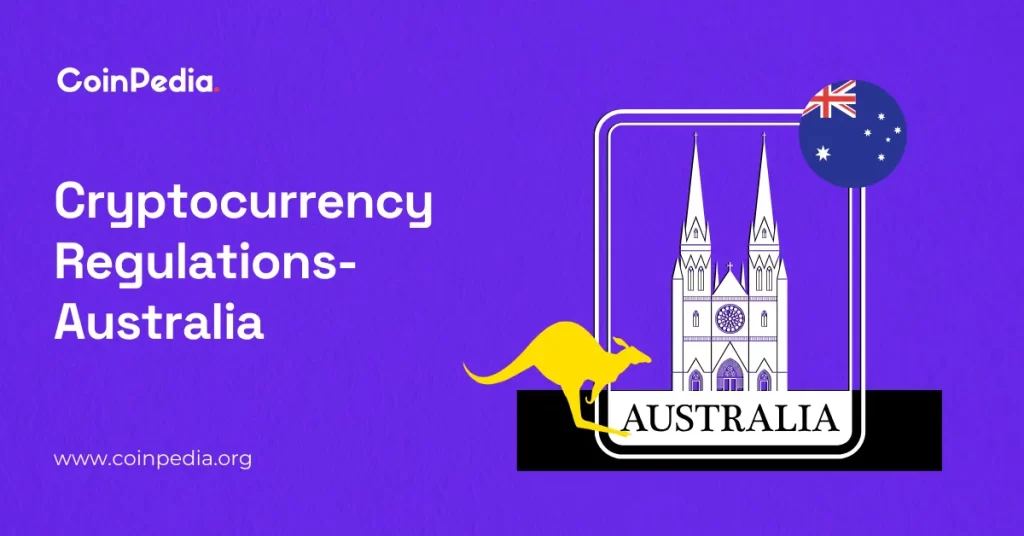
The post Crypto Regulations in Australia 2025 appeared first on Coinpedia Fintech News
Australia is one of the most favorable regions to operate crypto-related activities. It has enacted a series of rules to mandate strict compliance with consumer protection and investors’ rights. It is a crypto-friendly country with a supportive stance towards innovation in blockchain technology and cryptocurrency. As of 2025, Australia is enhancing transparency to prohibit misleading or deceptive conduct in the crypto space.
September 24, 2025:
The Treasury of Australia has proposed draft legislation requiring crypto exchanges and certain crypto service providers to hold Australian financial services licenses.
Under new rules, the Australian Securities and Investments Commission (ASIC) is set to be the main regulator issuing the licenses. Consultation on the draft legislation is now open until Oct. 24, 2025.
September 18, 2025:
Australia’s Securities and Investment Commission (ASIC) announced a class exemption. This allows licensed intermediaries to distribute stablecoins without requiring separate regulatory approvals.
Firms overseen by Australian Financial Services will be able to offer fiat-pegged digital assets without holding a separate AFS, market, or clearing licence.
July 10, 2025:
The distributed ledger technology (DLT) platform, Hedera, joined the RBA’s (Reserve Bank of Australia) Project Acacia to explore the evolution of digital assets, including CBDC. It aims to analyze the development of the Australian wholesale tokenized assets market with digital money and the existing settlement infrastructure.
May 23, 2025:
The Australian government confirmed that 2025 is the year when previously discussed crypto regulatory reforms will become law. This marks a major regulatory shift, with new rules and licensing requirements coming into effect for the crypto sector.
May 15, 2025:
Treasurer Jim Chalmers announced that draft legislation for the new crypto regulatory framework will be circulated for public comment by the third quarter of 2025. Final rules are expected to follow after this consultation period.
April 2025:
New licensing requirements for Digital Asset Platforms (DAPs) were introduced and became effective. These changes are part of Australia’s move from passive oversight to proactive regulation, focusing on consumer safety and financial integrity.
March 21, 2025:
The Treasury outlined its crypto regulation plan, confirming that exchanges, custody services, and some brokerage firms will come under new laws. These entities must follow financial services rules, including obtaining an Australian Financial Services Licence and meeting minimum capital requirements. Payment stablecoins will also be regulated as stored-value facilities, with some exemptions.
Timeline of Major Crypto Regulations
| Date | Crypto Regulations/ Laws | Details |
| May 2, 2024 | AML/CFT Act | The Attorney General released the second consultation |
| 2023- 2024 | ASIC Enforcement/ Guidance | Enforcement against unlicensed activity, INFO 225 Guidance |
| March 29, 2023 | Introduction of Digital Assets Market Regulation | Proposed licenses for exchanges, custody, and stablecoins |
| February 3, 2023 | Token mappning consulation | Integrating crypto activities into existing laws |
| March 21, 2022 | CASSPrs Consultation | Proposed crypto service provider regulation |
| April 3, 2018 | DCE registration with AUSTRAC | Mandatory AML/CFT compliance for exchanges |
| March 2, 2010 | NCCP Act 2009 | Credit licensing for crypto lending |
| 2006 | AML/CFT Act | Mandatory obligation for DCEs |
Currently, the Australian government is setting some upcoming regulations for cryptocurrency to enhance industry compliance and address debanking concerns. The government is planning to boost the country’s financial sector in the global economy and competitiveness with new crypto laws. Primary focus:
How is crypto taxed?
| Income of an individual | Tax rate |
| $0- $18,200 | 0% |
| $18,201 – $45,000 | 16% |
| $45,001 – $135,000 | 30% |
| $135,001 – $190,000 | 37% |
| $190,001+ | 45% |
The Australian government is currently investigating the potential of central bank digital currency (CBDC) to integrate it into the country’s financial framework. While AUSTRAC and ASIC are developing consumer protection measures, the Aussie government is actively working to establish a successful regulatory balance between innovation and stability.
Stay ahead with breaking news, expert analysis, and real-time updates on the latest trends in Bitcoin, altcoins, DeFi, NFTs, and more.